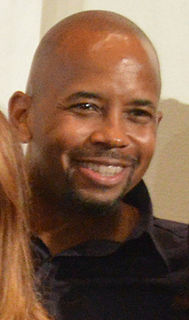A Quote by Jane Smiley
Every novel deals with social problems. It can't help it because the protagonist must come in conflict with his group. So the author has to offer an analysis of how the group and the protagonist fit. Otherwise, the reader will just say, "This makes no sense," and will put it away.
Related Quotes
One group of scholars or persons, most of them politically motivated, say the Holocaust occurred. Then there is the group of scholars who represent the opposite position and have therefore been imprisoned for the most part. Hence, an impartial group has to come together to investigate and to render an opinion on this very important subject, because the clarification of this issue will contribute to the solution of global problems.
Every one of the constituent elements of a social group, in a modern city as in a savage tribe, is born immature, helpless, without language, beliefs, ideas, or social standards. Each individual, each unit who is the carrier of the life-experience of his group, in time passes away. Yet the life of the group goes on.
A leader must identify himself with the group, must back up the group, even at the risk of displeasing superiors. He must believe that the group wants from him a sense of approval. If this feeling prevails, production, discipline, morale will be high, and in return, you can demand the cooperation to promote the goals of the community.
Girlchild . . . unfolds a compelling, layered narrative told by a protagonist with a voice so fresh, original, and funny you'll be in awe. This novel rocks . . . In Girlchild Tupelo Hassman has created a character you'll never forget. Rory Dawn Hendrix of the Calle has as precocious and endearing a voice as Holden Caulfield of Central Park. When you finish this novel, your sorrow at turning the last page will be eased by your excitement at what this sassy, talented author will do next.
Even if you make a movie about a criminal locked up in prison, you may not support him as a criminal, but you have to like him on some level. You have to love your protagonist and respect him. He will only open his heart to you when he believes that you are treating him with respect, with love. Only then will there be no more walls between the filmmaker and the protagonist.
A conventional ‘success’ story is one where, with each next, the protagonist has more money, more respect, and more possessions. I’d like to suggest an alternative ‘success’ story – one where, with each next, the protagonist is closer to finding that spot where he’s no longer held back by his heart, and he explodes with talent, and his character blossoms, and the gift he has to offer the world is apparent.
One reason patients are reluctant to work in a therapy group is they fear that things will go too far, that the powerful therapist or the collective group might coerce them to lose control--to say or think or feel things that will be catastrophic. The therapist can make the group feel safer by allowing each patient to set his or her limits and by emphasizing the patient's control over every interaction.







































